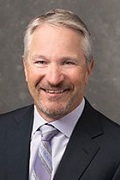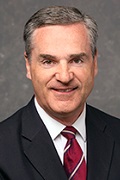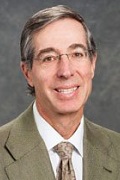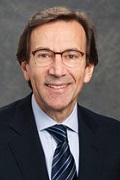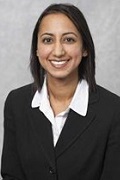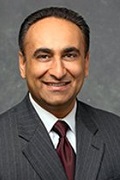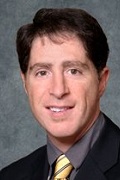The role of the expert in Canadian Courts has been well-established. An often quoted case is R. v. Mohan1:
“An expert's function is precisely this: to provide the judge and jury with a ready-made inference which the judge and jury, due to the technical nature of the facts, are unable to formulate. ‘An expert's opinion is admissible to furnish the Court with scientific information which is likely to be outside the experience and knowledge of a judge or jury. If on the proven facts a judge or jury can form their own conclusions without help, then the opinion of the expert is unnecessary’ (Turner (1974), 60 Crim. App. R. 80, at p. 83, per Lawton L.J.).”
The Ikarian Reefer case and subsequent cases addressed the responsibility of the expert.2
- Expert evidence presented to the Court should be, and should be seen to be, the independent product of the expert uninfluenced as to form and content by the exigencies of litigation;
- An expert witness should provide independent assistance to the Court by way of objective, unbiased opinion in relation to matters within his or her expertise. An expert should never assume the role of an advocate;
- An expert witness should state the facts or assumptions on which the opinion is based, and should not omit to consider facts which may detract from the opinion.
Yet the role of the expert witness remains an area of contentious inquiry in Canadian courtrooms. While counsel for the opposing litigants typically focus their cross examination on the building blocks of the expert opinion, on occasion counsel may probe whether or not the expert is living up to his/her responsibility to provide independent and objective analysis based on a complete consideration of the facts.
Findings of bias are still relatively rare in Canada. That said, whether justified or not, the perception held by some is that an expert witness is, on occasion, susceptible to influence or bias. This perception may be fostered by several factors:
- the subject matter of expert evidence is often subjective;
- the expert is typically required to make assumptions;
- whether by necessity or not, some of the assumptions adopted by the expert may be provided by the litigant's counsel;
- the extent to which the expert has undertaken due diligence in support of his/her expert opinion;
- the opinion of another expert retained for the same case, by opposing counsel, may differ widely;
- the expert’s fees are typically paid by the litigant;
- the manner in which findings are presented in the expert report;
- the conduct of the expert during the investigation and during his/her testimony.
It is to the benefit of all stakeholders that professionals that hold themselves out as experts conduct themselves with the utmost professionalism and integrity. Over the years, various stakeholders have attempted to mitigate this perception through codes dealing with formal training, scope of work and the conduct of experts. Most recently, the Rules of Civil Procedure in Ontario have been amended effective January 1, 2010. Two areas of amendment pertaining to expert evidence focus on the duty of experts (Rule 4.1.01) and the contents of an expert report (Rule 53.03 (2.1)).
It is noteworthy that these “new” rules are in essence a reiteration parameters that have been previously established by the courts and/or regulating bodies which govern the experts.
For example, the conduct of Chartered Business Valuators is governed by the Standards and Code of Ethics of the Canadian Institute of Chartered Business Valuators (“CICBV”). The Code of Ethics outlines the “fundamental ethical principles of practice” and in this regard is different from the CICBV Standards which outline current best practices.
The purpose of the Code of Ethics is to set…”a minimum level of acceptable professional conduct …essential to maintaining the professional reputation of CBV’s… and the [CICBV] Institute.”
The Code of Ethics is divided into three parts; a Statement of Ethical Principles, the Rules of Professional Conduct; and the Practice Guidelines (which provide interpretation of the Rules of Professional Conduct).
Among the listed Ethical Principles is the responsibility to “Hold himself/herself free of any influence in respect of, or interest in, a client’s affairs which may impair or reasonably be seen to impair, his/her professional judgment or objectivity, except as specifically provided in the Rules of Professional Conduct”.3
A summary of the overlap in the new Rules of Civil Procedure, the Ikarian Reefer decision and a sample of the relevant provisions of the CICBV Code of Ethics & Standards of Practice is provided below.
|
|
Rules of Civil Procedure |
Ikarian Reefer |
CICBV |
|
Independence |
Rule 4.1.01(a) To provide evidence that is fair, objective and non-partisan. |
Expert evidence presented to the Court should be, and should be seen to be, the independent product of the expert uninfluenced as to form and content by the exigencies of litigation. |
Code of Ethics 401.2 A Member providing independent professional services shall, in respect of the particular engagement, be and remain free of any influence, interest or relationship, which in respect of the engagement, impairs the professional judgment or objectivity of the Member or which, in the view of a reasonable observer, would impair the professional judgment of objectivity of the Member. 4 |
|
Expertise |
Rule 4.1.01(b) To provide opinion evidence that is related only to matters that are within the expert’s area of expertise. |
An expert witness should provide independent assistance to the Court by way of objective, unbiased opinion in relation to matters within his or her expertise. |
Code of Ethics 102.2 102.2 A Member shall only undertake to provide professional services which he/she is competent to provide by virtue of training or experience, or is able to become competent in without delay, risk or expense to the client. |
|
Fair |
Rule 4.1.01(a) To provide evidence that is fair, objective and non-partisan. |
Expert should not omit to consider facts which may detract from the opinion. |
Code of Ethics 201.1 201.1 A member shall not : (i) sign or associate himself/herself with any letter, report, statement or representation which he/she know, is false or misleading or (ii) make any oral report statement or representation which he/she knows, or should know is false or misleading. |
The CICBV’s Code of Ethics addresses other areas of conduct dealing with independence, expertise and fairness. For example:
- The Member is required to maintain his/her professional competence by complying with, among other things, the CICBV Practice Standards. A copy of these standards is available from the CICBV website at www.cicbv.ca;
- The member is required to perform services with integrity, good faith and due care;
- Section G403.1 outlines particular circumstances that may lead to an actual or perceived conflict of interest.
In summary, the role of the expert and the standards to which the expert is held have been long established and the recent changes to the Rules of Civil Procedure are a confirmation of the expectations one can reasonably expect from an expert engaged to provide an independent opinion.
Footnotes
1 (1994) 114 D.L.R. (4th) 419 [1994] a S.C.R. 9.89 ccc (3D) 402.
2 National Justice Companion Naviera S.A .v. Prudential Assurance Co. Ltd. [1993] 2 Lloyd’s Rep 68(Q.B.D.(Comm C+)).
3 G401.1 Any member accepting an engagement where he/she is not acting independently should fully and clearly disclose in writing to the client all material facts which are known to the Member, or should be known, setting out why the Member is not acting independently on such engagement.
4 Section 401.3 of the Code of Ethics outlines particular issues to consider. For example, a member shall not hold any financial interest or other interest (including contingency fees, commissions, referrals fees etc). Section G401.2 notes that “It is impossible to enumerate … all of the circumstances, or relationships that raise independence concerns. The factors listed are not exhaustive, and are general guidance only…”











